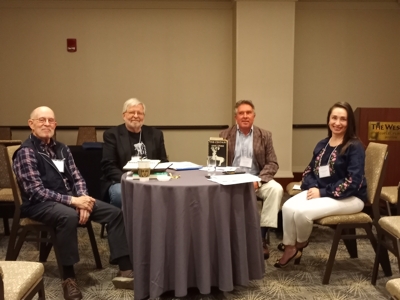The Centaur was a big deal in 1963. The novel, which dealt with classical mythology on the surface of an otherwise realistic narrative, earned John Updike the National Book Award. His third novel (following The Poorhouse Fair and Rabbit, Run) turns 60 this year, and the American Literature Association panel on “The Centaur at Sixty: Updike’s Ulysses” will be reprised with a slightly different cast at the 7th Biennial John Updike Society Conference in Tucson this coming September.
As Stacy Olster noted in The Cambridge Companion to John Updike, “Updike’s willingness to assign tremendous significance to his childhood home reaches a crescendo in The Centaur, a powerful attempt to mythologize the artist’s early portrait by returning, as James Joyce did in A Portrait of the Artist as a Young Man (1916) and Ulysses (1922), to ancient Greek stories.”
Updike had told Charlie Reilly in 1986, “For The Centaur, I had Ulysses in my head at all times.” Eight years earlier Updike had remarked that “the book had its origins in a little children’s book of Greek mythology which my ex-wife had as a girl and which I was just reading around in. Somewhere in it, I came across this variant, this footnote almost, to the Centaur myth. . . . And I thought, well, this is an unusual myth, especially in the sense that so few Greek myths involve the idea of sacrificing or laying down one’s life for another. . . . So, I began with the myth, and then my own father very naturally attached himself to it because he sort of loomed as a centaur in my own life at that time. The novel really took off with the myth, and for that reason the myth is really in the foreground of the novel, not in the background as in Ulysses.”
The ALA conference panel in Boston featured (l to r) Peter Bailey, Jim Plath, David Updike, and Olga Karasik-Updike. David brought his mother’s first edition of The Centaur, which had inside it a telegram of praise from one of the Soviet Union’s most famous writers—a note that Karasik-Updike read and contextualized for the audience.

